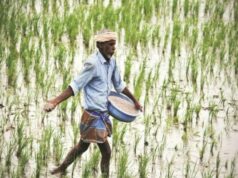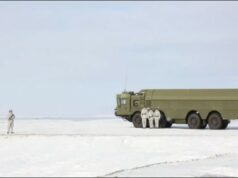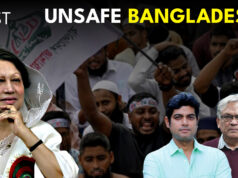
On July 6, 2025 when Tibet’s exiled spiritual leader the Dalai Lama, turns 90, he is expected to lend more clarity on the issue of his succession. Thus far, his pronouncements on the matter have hinted at various outcomes. Sample this, addressed to a group of journalists in Dharmsala in 2019.
“The reincarnation of the Dalai Lama, the future of the Dalai Lama, is ultimately in my own hands. At the time of my death, I will write some will. So my rebirth I think will somewhere (be in the ) Buddhist community. As early as 1969, I made clear (whether) the institution of Dalai Lama should continue or not (is) up to the Tibetan people. Reincarnation is not important, it’s important that Buddha’s teachings remain.”
China, on the other hand, claims that it alone has the right to decide on the reincarnation and therefore the succession. It already has a Panchen Lama, appointed in 1995 after setting aside the Dalai Lama’s anointment of six year old Gedhun Choekyi Nyima as the Panchen Lama. His whereabouts are unknown.
This throws the door open for a number of scenarios that India needs to prepare for, argues Vijay Gokhale, former foreign secretary and ambassador to China. In a paper for the Carnegie India think tank written in November 2024, Gokhale has articulated those scenarios or options.
Scenarios That Could Play Out
What if the Dalai Lama decides that the reincarnation process could begin in India? By convention and practice the Indian state does not interfere in the selection of any religious leader in the country, Gokhale notes. Practitioners and followers of Tibetan Buddhism are there in some of the north Indian states. All the Government of India can do is to reiterate the constitutional position, that the Tibetan Buddhists are entitled to choose their own leader freely and without interference.
Dialogue: Should India publicly call for a dialogue between the Dalai Lama and China? This is not something the Indian government has ever called for but with the growing international calls for such a dialogue, India could support it given the presence of a large exiled Tibetan community in the country. India can call for such dialogue independently and on the basis of “3 Mutuals — mutual respect, mutual sensitivity and mutual interests.”
Self-Determination: Should India support the exiled Tibetan community’s demand for self-determination? This has not been the case in the past, writes Gokhale, but points to China calling upon India to resolve Kashmir in accordance with the will of the Kashmiri people. India could use similar or identical language urging China to do the same with Tibet.
“This is different from supporting the demand for self-determination and adequately nuanced to make the point that the principles China claims to espouse in its foreign policy should also be applied to its domestic policy,” Gokhale underscores.
Shrine: Should India agree on a site or shrine for the Dalai Lama? This might be inevitable if he passes away in India. It would make him the first Dalai Lama since 1706 to be buried outside the Potala Palace in Lhasa. India could identify such a location well in advance knowing that it would become a shrine for millions of pilgrims. Hence issues like security and accessibility need to be carefully thought through.
India should also develop a response to China’s likely demand that the Dalai Lama’s remains be sent there since he is a citizen of that country.
Sensitive Interregnum: How will the Indian government handle the interregnum between the passing away of the 14th Dalai Lama and the identification of the 15th? This period could last many months. Since mechanisms already exist, there would be no need for India to formally recognise the Central Tibetan Administration or formalise the interaction through a coordinator, as has been suggested by some.
Should India coordinate with like-minded states on the post Dalai Lama situation? The US Congress is already pushing for a multilateral effort to counter China’s narrative and claims. India will need to closely study suggestions for joint initiatives to create a global coalition on the reincarnation question. The aim should be to ensure such initiatives do not exacerbate tensions between Delhi and Beijing.
Free Country: If the successor to the current Dalai Lama is found in a “free country”, as he has already said, should India recognise him as legitimate, knowing China would demand Delhi not do so. Even if India does not take an explicit position on the issue, should it allow him to enter the country?
What if the 15th Dalai Lama is discovered in India, is an Indian citizen? Will he be publicly acknowledged, if not what will his status be? Would he be permitted access to the residence and possessions of the ritual objects of the 14th Dalai Lama along with the enthronement ceremony. Since he will be a child and will be guided by a regency council, what should guide the government’s relationship and under what guidelines should the council operate?
In India, all religious organisations have the right to determine their own leadership, residence and practices without state interference. China may pressure India on that score but India should only point to the constitutional practice. The same for allowing the successor to live in India. Access to the symbols of office maybe more sensitive as China will claim ownership.
Thirty eight years in journalism, widely travelled, history buff with a preference for Old Monk Rum. Current interest/focus spans China, Technology and Trade. Recent reads: Steven Colls Directorate S and Alexander Frater's Chasing the Monsoon. Netflix/Prime video junkie. Loves animal videos on Facebook. Reluctant tweeter.




